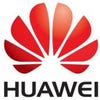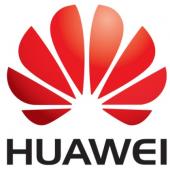Huawei Named the Top Leader in the Gartner 2022 Magic Quadrant for Wired and Wireless LAN InfrastructureHuawei Named the Top Leader in the Gartner 2022 Magic Quadrant for Wired and Wireless LAN Infrastructure
Huawei’s portfolio includes enterprise wired and wireless LAN infrastructure offerings that serve millions of customers worldwide across industries, and those customers rate them highly.
January 31, 2023

Huawei isn’t a new addition to Gartner Magic Quadrants, but for the first time, the company was positioned in the 2022 Magic Quadrant for Wired and Wireless LAN Infrastructure, and it’s worth noting that Huawei was the only non-North American company included. Moreover, the company beat all other competitors on both axes of the Gartner Magic Quadrant, which are Completeness of Vision and Ability to Execute. This coveted “up and to the right” position is yet another testament to Huawei’s complete lineup of campus network offerings.
Huawei’s portfolio includes enterprise wired and wireless LAN infrastructure offerings, including the end-to-end CloudCampus Solution across LANs, WLANs, and WANs; CloudEngine S-Series campus switches, award-winning AirEngine Wi-Fi 6 access points (APs) and the field-proven iMaster NCE automatic and intelligent AI-powered network management platform. All these products and solutions serve millions of customers worldwide across industries, and those customers rate them highly.
Huawei leads the way
Huawei’s constant innovations continue to set new expectations for enterprise networks. Examples include a simplified two-tier network architecture (versus three) that consists of a central switch and Remote Units (RUs).
On the hardware innovation front, the company has unveiled third-generation Wi-Fi 6 smart antennas, a range of new CloudEngine switches, and AirEngine access points APs. On the software side, Huawei offers the iMaster NCE automatic and intelligent network platform that underpins the industry’s first L3 autonomous driving network for campuses.
Through continued investment in AI and ML, Huawei has further advanced its state-of-the-art network automation, orchestration, and fault identification capabilities.
The company’s support of business models is also unique: Customers can choose between a leasable or salable cloud platform model and flexible deployment options, including on-premises, Huawei public cloud, and MSP-own cloud.
To date, Huawei campus network offerings have been widely used in over 170 countries and regions around the world across industries, including education, energy, finance, healthcare, and manufacturing. With these solutions, companies can achieve higher levels of intelligence throughout the enterprise, making them more competitive in today's increasingly digital world.
With Huawei, enterprises can finally deliver fully wireless access and enjoy the simplicity of one global network that enables one hop to multiple clouds, with always-on services accessible from anywhere. They can also improve cloud management through agile service provisioning and enable intelligent operations and management via ultra-reliable services.
One reason customers choose Huawei is its support of new business forms, including smart campuses, flexible manufacturing, mobile finance, and e-government. For example, with Huawei, organizations can build contactless workplaces for efficient and secure production operations, improve office efficiency through audio and video-based collaboration, and accelerate service cloudification.
Huawei helped Absa Kenya with its digital transformation
Absa Kenya offers seamless online banking and transactions from wherever they may be. The IT department also serves internal customers, such as those working in branches who want to improve their operational efficiency.
Networking plays a critical role in meeting those goals. For example, Absa Kenya uses numerous connectivity providers that offer connections via fiber optic channels, microwave, and 4G. All those points of connectivity need to operate in a seamless manner so internal and external users can continue to enjoy digital experiences, wholly unaware of a network glitch or signal degradation.
Using Huawei campus network solutions, Absa is now able to achieve greater resilience by managing traffic and distributing it evenly across the various connections from the different service providers. In addition, the IT team now has visibility into usage and connectivity patterns, as well as how the network traffic is distributed.
If manual intervention is required, the IT team is able to quickly and easily pinpoint where the errors are occurring, which has reduced both meantime to detection (MTTD) and meantime to resolution (MTTR). Its response time has also improved because Absa Kenya has been able to deliver a software-defined network (SDN) throughout Kenya that is intelligently managed.
“I see it as Lego blocks where the bottom layer is a strong technology foundation that gives us a platform to offer cutting-edge digital solutions to our customers. A strong, resilient network connects all the elements of the platform reliably ”, said Moses Okundi, CIO of Absa Kenya and CIO Africa’s 2022 CIO of the year. In the future, the powerful network will further promote the intelligent upgrade of Absa Bank and evolve into intelligent customer experience centers.
About the Author
You May Also Like




